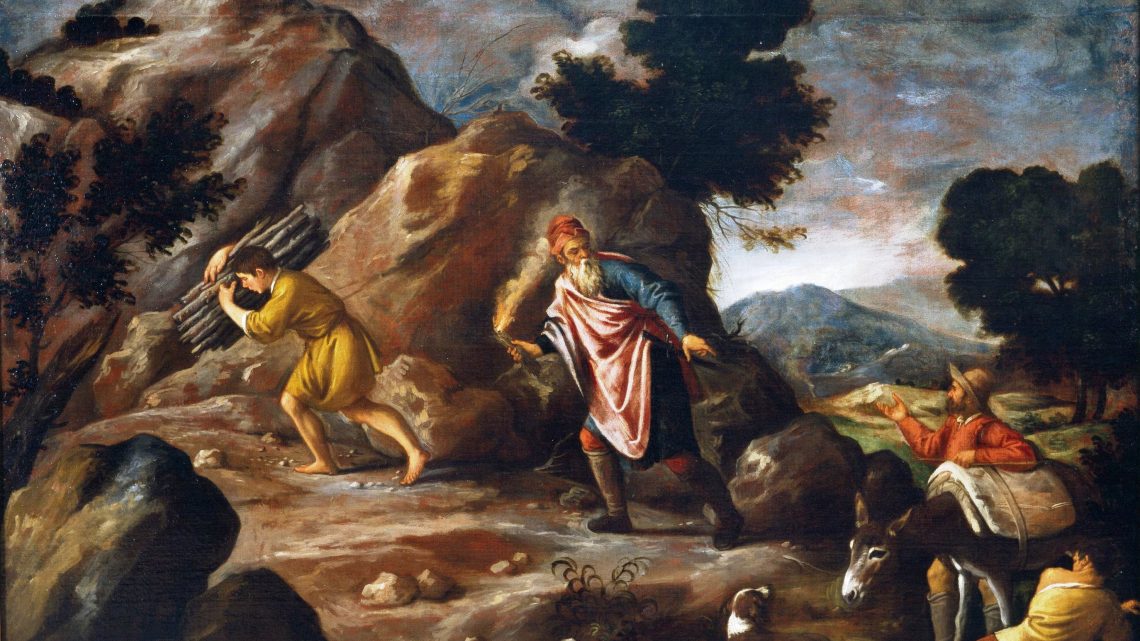The promise of descendants, which seemed impossible after they had both passed 90 years of age, was dramatically — if only partially — fulfilled. Sarah, the long past childbearing years, conceived and bore Abraham a son. One son, miraculously born, but still only one child. Not children as numerous as the sands of the sea, but at least the potential remained there. And then, perhaps not.
Abraham and Sarah had waited their whole lives for a child — more than nine decades! Abraham had been promised that his descendants would be like the sands of the sea, and yet, as they passed age 90 they still had no child. And then, against all odds, indeed, as the result of a divine miracle, a son is born to them. And then one morning, God commanded Abraham to take his son, his only son, up to Mount Moriah and sacrifice him there. The long-awaited child, the child of miracle, to be taken from them, and worse, that Abraham had to personally slay his son! Just imagine how desperate would be his grief, how deep is despair!. Paul tells us that “faith is the substance of things hoped for.” Abraham had exhibited that faith, by leaving his homeland and trusting the Lord.
But the child would not be merely the substance of something hoped for but the reality, that which had been hoped-for literally in the flesh. For most of his life, Abraham maintained his faith that God would give him the son and heir he so desperately wanted. And then, after both he and Sarah were advanced in years, well beyond childbearing, God granted them that child.
And then one morning when the hoped-for child was a young man, word came not that Abraham would lose the child, but that God required him to sacrifice the child: to bind him to an altar, slit his throat, and set fire to the corpse. If faith is the substance of things hoped for, how do you maintain faith when the thing hoped-for is about to be taken from you?
Now it came about after these things, that God tested Abraham, and said to him, “Abraham!” And he said, “Here I am.” 2 He said, “Take now your son, your only son, whom you love, Isaac, and go to the land of Moriah, and offer him there as a burnt offering on one of the mountains of which I will tell you.”
It is difficult to imagine a more poignant setting. Note how the text makes explicit the emotional cost being imposed upon Abraham. “Take your son, your only son, whom you love…”
There is no wiggle room for a Abraham here. “Take your son, your only son, whom you love.” There is no thinking “I will recall Ishmael, and sacrifice him instead.” No, Isaac is the only son of the promise, Isaac is the son of hope. It is precisely because Isaac is the treasured son that God specifies he is the one to be sacrificed.
Abraham somehow finds the will to obey. He and Isaac, along with a couple servants, set out for Mount Moriah. At the base of the mountain, he and Isaac leave the servants behind. During the ascent Isaac asks a portentous question. In fact, it has been said that the entire Old Testament can be summed up in Isaac’s question: “Where is the lamb?”
Since they’re going to offer a sacrifice, Isaac wants to know where his father intends to find the lamb to be offered. Isaac cannot have been ignorant of the practice of human sacrifice, which was common to all the nations around them in the ancient world. Perhaps he has a premonition that he is to be the sacrificial animal.
Of course we object that God does not require human sacrifice, that he abhors it. But that’s because we have the whole Bible to read, including this particular episode. The scriptural prohibition of human sacrifice does not come until after the events in the book of Genesis, where the story occurs.
One of the amazing things about Abraham’s faith is that he had to rely solely on the few times he heard God’s voice. He did not have any of the Scriptures to read. Instead of reading about God’s deliverance of his people, Abraham was living out the example of God’s deliverance. In this episode is the first clear indication that God does not want human sacrifice. But Abraham is not read the end of the story — he’s living it in real time.
Abraham’s answer to Isaac’s question, “Where is the lamb?” Perhaps hints that the basis for his faith, and what sustains him to obey God’s command sacrifice his son. It also demonstrates the difference between the Old Testament and the New, but this contrast exemplifies for us what it means to live by faith in every generation.









